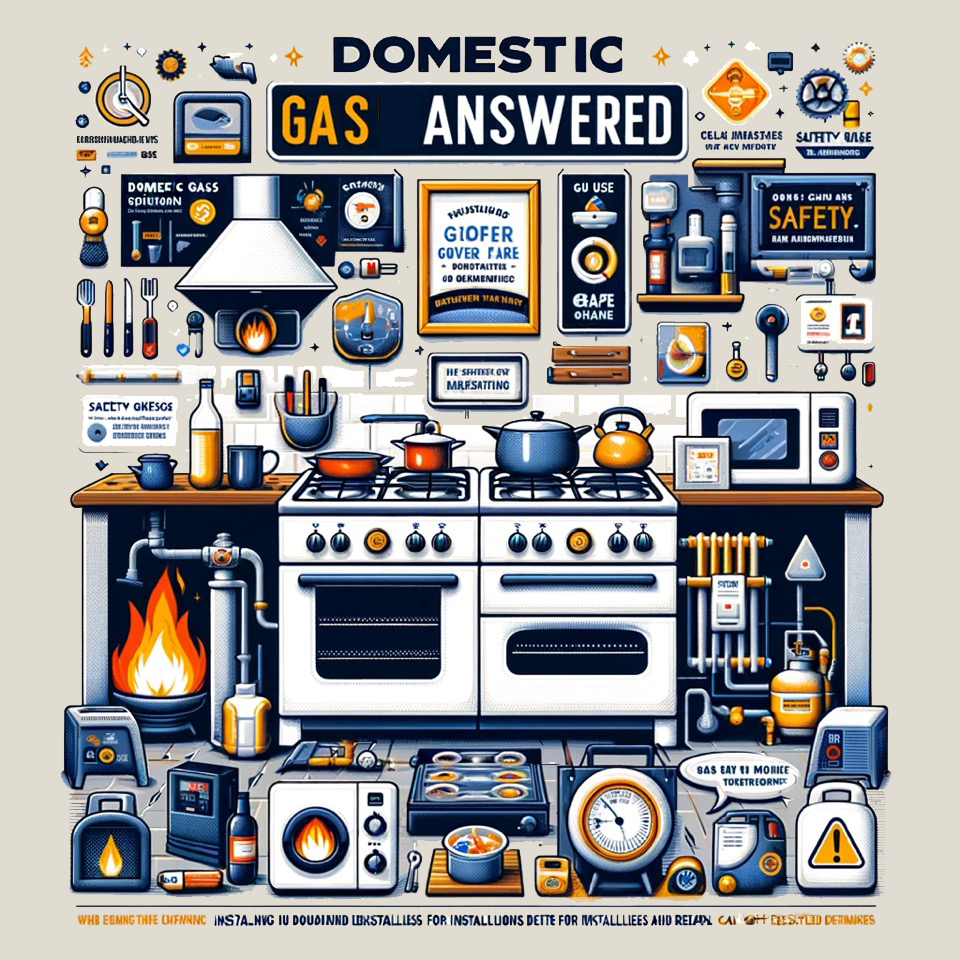Navigating Domestic Gas in the UK: Common Questions on Cookers, Hobs, Fires, and Boilers Answered
The gas FAQ page is new in February 2024 and is expected to have a navigation system to new exciting articles soon.
In the UK, gas is a primary fuel source for cooking, heating, and hot water in many homes. Its efficiency and cost-effectiveness make it a popular choice, but it also raises numerous questions, especially concerning safety, installation, and maintenance. This article aims to address some of the most common domestic gas questions related to cookers, hobs, fires, and boilers, providing UK homeowners with essential insights and guidanc, that could relate to common gas emergencies.

Are Gas Appliances Safe to Use in the Home?
Safety is paramount when it comes to using gas appliances. In the UK, all gas appliances must meet strict safety standards and should be installed and regularly serviced by a Gas Safe registered engineer. Proper installation, ventilation, and maintenance greatly reduce the risks associated with gas appliances, such as carbon monoxide poisoning or gas leaks. It's also important to have a carbon monoxide detector installed near gas appliances as an additional safety measure.
How Often Should Gas Appliances Be Serviced?
To ensure the safe and efficient operation of gas cookers, hobs, fires, and boilers, it's recommended that they be serviced annually by a Gas Safe registered engineer. Regular servicing helps to identify any potential issues before they become serious problems, ensuring your appliances are safe to use and operate at peak efficiency.
Can I Install a Gas Appliance Myself?
In the UK, the installation of gas appliances is strictly regulated. Only individuals who are Gas Safe registered are legally permitted to install or carry out major repairs on gas appliances. DIY installation or repairs can be extremely dangerous and is illegal; it risks your safety and that of those around you, and can invalidate your home insurance.
What Should I Do If I Smell Gas?
If you smell gas or suspect a gas leak, it's crucial to act quickly and safely. First, turn off the gas at the meter, open windows and doors to ventilate the area, and avoid using any electrical switches or flames. Immediately call the National Gas Emergency Service at 0800 111 999 from a phone outside the affected area. Do not re-enter the property until it has been declared safe by a professional. We have a dedicated article under safety gas advice before calling an emergency gas engineer.
How Can I Improve the Efficiency of My Gas Boiler?
Ensuring your gas boiler operates efficiently can save you money on energy bills and reduce your carbon footprint. Regular servicing, as mentioned, is essential. Additionally, consider upgrading to a more energy-efficient boiler if yours is old and less efficient. Installing a smart thermostat can also help manage your heating more effectively, allowing you to heat your home only when necessary and to the desired temperature.
What's the Difference Between a Gas Fire and a Gas Heater?
Gas fires are designed to simulate a traditional fireplace and provide radiant heat, making them a focal point in many living rooms. They can be highly efficient and are available in various styles to suit different home aesthetics. Gas heaters, on the other hand, are typically portable units used to heat individual rooms or spaces. They're useful for providing additional warmth where central heating might not reach or as a backup heating source.
Conclusion: Understanding the basics of domestic gas usage in the UK, from the importance of safety to the efficiency of your appliances, can help you make informed decisions about your home's energy use. Always consult with and hire Gas Safe registered professionals for installation and servicing to ensure your gas cookers, hobs, fires, and boilers are safe and efficient. By following these guidelines, you can enjoy the benefits of gas in your home with peace of mind.